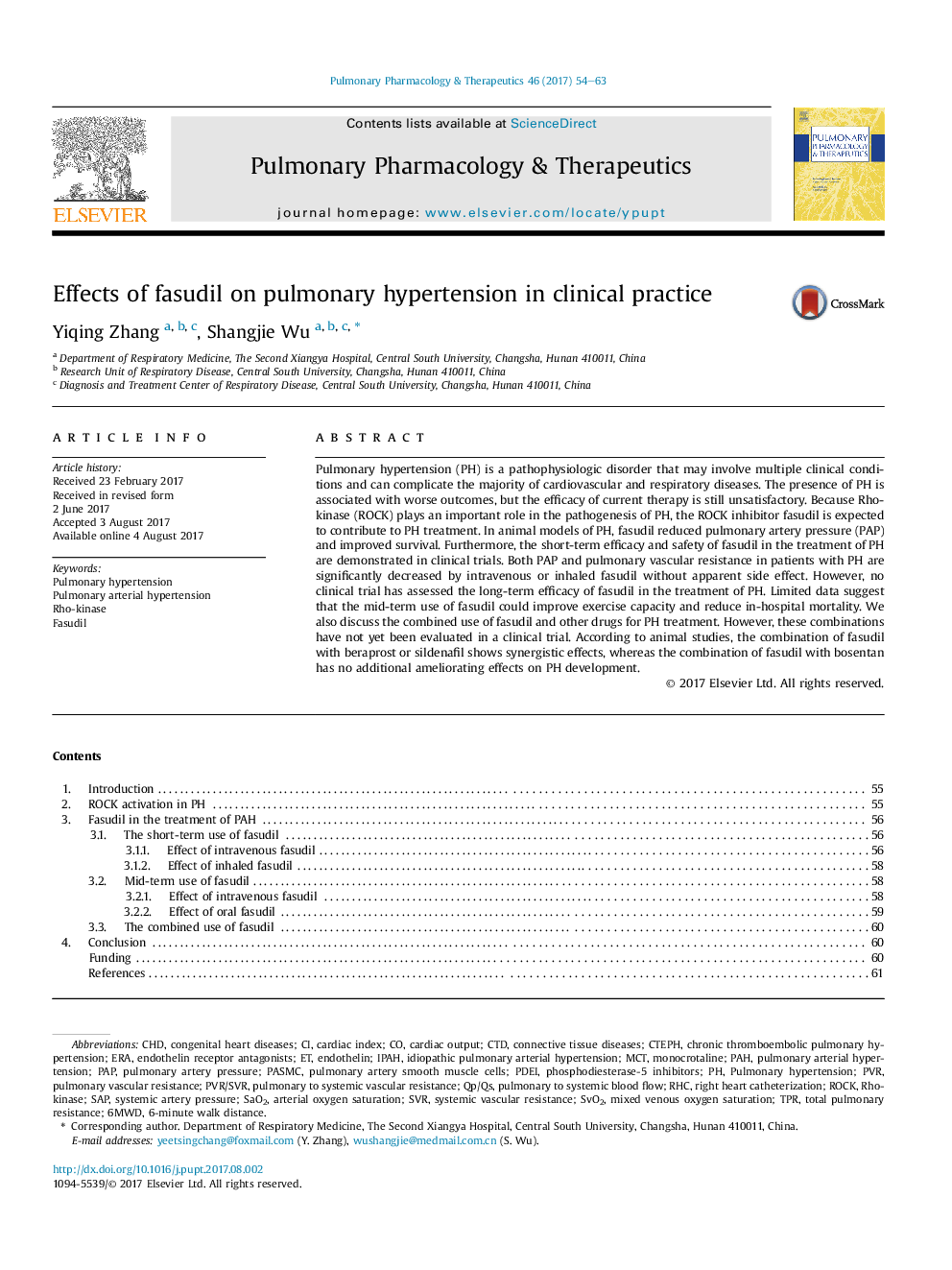| Article ID | Journal | Published Year | Pages | File Type |
|---|---|---|---|---|
| 5558121 | Pulmonary Pharmacology & Therapeutics | 2017 | 10 Pages |
Pulmonary hypertension (PH) is a pathophysiologic disorder that may involve multiple clinical conditions and can complicate the majority of cardiovascular and respiratory diseases. The presence of PH is associated with worse outcomes, but the efficacy of current therapy is still unsatisfactory. Because Rho-kinase (ROCK) plays an important role in the pathogenesis of PH, the ROCK inhibitor fasudil is expected to contribute to PH treatment. In animal models of PH, fasudil reduced pulmonary artery pressure (PAP) and improved survival. Furthermore, the short-term efficacy and safety of fasudil in the treatment of PH are demonstrated in clinical trials. Both PAP and pulmonary vascular resistance in patients with PH are significantly decreased by intravenous or inhaled fasudil without apparent side effect. However, no clinical trial has assessed the long-term efficacy of fasudil in the treatment of PH. Limited data suggest that the mid-term use of fasudil could improve exercise capacity and reduce in-hospital mortality. We also discuss the combined use of fasudil and other drugs for PH treatment. However, these combinations have not yet been evaluated in a clinical trial. According to animal studies, the combination of fasudil with beraprost or sildenafil shows synergistic effects, whereas the combination of fasudil with bosentan has no additional ameliorating effects on PH development.
